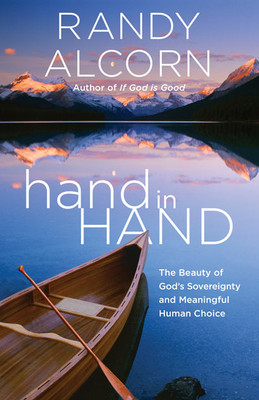I believe in divine election as taught in Scripture. The “elect” are referred to in ten or so passages and the “chosen” in many others. Col 3:12 calls us “God’s chosen people, holy and dearly loved.”
“Who will bring any charge against those whom God has chosen? It is God who justifies (Romans 8:33). Ephesians 1:11 says “In him we were also chosen, having been predestined according to the plan of him who works out everything in conformity with the purpose of his will.” Romans 9:10-21 makes clear we are in sin and can do nothing to earn or merit our being chosen by God. His choice of us is unconditional and therefore in no sense is it to our credit.
However, I also believe Scripture indicates God gives us the ability to make real and meaningful choices. This is demonstrated in passage after passage commanding us to do things but not forcing us to them, that is leaving to us the choice of whether or not to obey God. For example, invitations such as “Come unto me” and “I stand at the door and knock” and “Let him who is thirsty come, drink freely of the water of life” and “If we confess our sins” and “If my people who are called by my name will humble themselves and pray and seek my face...” The fact that God holds us accountable for our choices both as unbelievers and believers indicates that those choices are in fact real and meaningful.
How do I reconcile this paradox between election and free will? I don’t. I just believe it because Scripture teaches it.
Though I believe in unlimited atonement, that Christ died for all, not just the elect (based not on logic but on 1 John 2:2), my own position on election is similar to that laid out by Wayne Grudem in his book Systematic Theology: An Introduction to Biblical Doctrine.
 Finally, I've written a book titled hand in Hand: The Beauty of God's Sovereignty and Meaningful Human Choice, in which I seek to bring a respect for brothers and sisters in Christ who believe God’s Word but understand it differently than I do. I think it’s one of the few books that people with very different beliefs about sovereignty and free will might be comfortable with. People who are completely Arminian or Calvinist on every point will take issue with some things in the book. But many people will be able to handle my difference in perspective on some issues when they see agreement on others, and above all when they sense respect and accuracy in the conveying of positions that aren’t my own.
Finally, I've written a book titled hand in Hand: The Beauty of God's Sovereignty and Meaningful Human Choice, in which I seek to bring a respect for brothers and sisters in Christ who believe God’s Word but understand it differently than I do. I think it’s one of the few books that people with very different beliefs about sovereignty and free will might be comfortable with. People who are completely Arminian or Calvinist on every point will take issue with some things in the book. But many people will be able to handle my difference in perspective on some issues when they see agreement on others, and above all when they sense respect and accuracy in the conveying of positions that aren’t my own.





